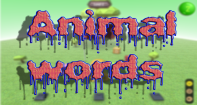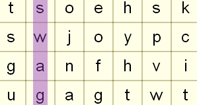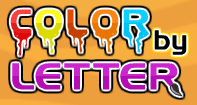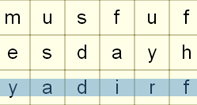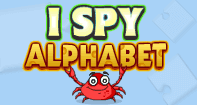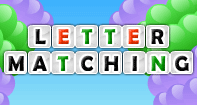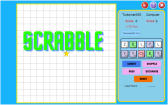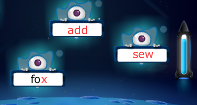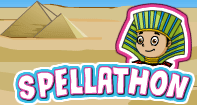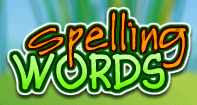Login as parent/teacher to assign this.
Spelling Games
Spelling Games
Turtle Diary's spelling games for kids come with a host of awesome benefits for children, parents, and teachers alike. It is no secret that a gamified approach to spelling can have an enormous impact on the learning process and through online spelling practice children will gain from the repetition and the excitement that comes with playing games.
Parents and teachers also gain valuable insight into the strengths of the children playing, as well as areas that may require further development. Another important thing about playing our spell games is that kids learn & gain exposure to popular content that coincides with core standards and teaching programs that they are familiar with from their schools.
Whether you are looking for options to practice early literacy with sight words, critical thinking skills with crosswords, spelling conventions, or anything in between, you can always find the best activity for your needs. There are spelling games for grade 1 students that focus on site words and phonics, while older children can play games that are a bit more advanced.
Playing games that are suited to the level of the child helps develop essential skills for academic readiness. Load up some of our popular spelling activities for grade 3 students, for example, and you will see the benefits from the additional practice surprisingly quickly. The benefits also lead to a greater propensity to enjoy spelling activities in a wide range of contexts, both in an online environment as well as offline.
As a result, kids take a greater degree of ownership of the words they see in their reading & writing attitude and it is all thanks to the elevated levels of motivation and commitment that they get from succeeding in the games they play.
Parents and teachers also gain valuable insight into the strengths of the children playing, as well as areas that may require further development. Another important thing about playing our spell games is that kids learn & gain exposure to popular content that coincides with core standards and teaching programs that they are familiar with from their schools.
Whether you are looking for options to practice early literacy with sight words, critical thinking skills with crosswords, spelling conventions, or anything in between, you can always find the best activity for your needs. There are spelling games for grade 1 students that focus on site words and phonics, while older children can play games that are a bit more advanced.
Playing games that are suited to the level of the child helps develop essential skills for academic readiness. Load up some of our popular spelling activities for grade 3 students, for example, and you will see the benefits from the additional practice surprisingly quickly. The benefits also lead to a greater propensity to enjoy spelling activities in a wide range of contexts, both in an online environment as well as offline.
As a result, kids take a greater degree of ownership of the words they see in their reading & writing attitude and it is all thanks to the elevated levels of motivation and commitment that they get from succeeding in the games they play.
A Variety of Fun Spelling Games
Many kids get bored with the simple spelling test & drills. This is why our free spelling games include word searches for various age groups, word scrambles, and interactive spelling games for the younger kids. These games allow them to quiz their new spelling skills without feeling overwhelmed.
You can start children as young as five years old on our spelling games online to help them improve their spelling skills, and learn to love spelling words the right way.
All the spelling quiz games we offer enable you to tailor the level to your child's learning ability. This is important in any game or worksheet your child uses, to eliminate the risk of getting overwhelmed or frustrated. When children feel frustrated, they can easily give up on this lifelong need.
Although there are 1000+ Language arts games, spelling activities offer learning in a fun, non-threatening way to enable them to learn the importance of spelling.
You can start children as young as five years old on our spelling games online to help them improve their spelling skills, and learn to love spelling words the right way.
All the spelling quiz games we offer enable you to tailor the level to your child's learning ability. This is important in any game or worksheet your child uses, to eliminate the risk of getting overwhelmed or frustrated. When children feel frustrated, they can easily give up on this lifelong need.
Although there are 1000+ Language arts games, spelling activities offer learning in a fun, non-threatening way to enable them to learn the importance of spelling.
What games help with Spelling?
Though there are many word lists and word games on the internet, the ones that help the most with spelling are those that have either missing letters you need to fill in or ones where you must unscramble the words.
While it’s true that the more you read, the better a speller you will become, often kids lean more towards educational games than they do spending time reading books. This is a problem in itself, because kids should obviously be spending at least 30 minutes of independent reading time each day which will increase their exposure to new words and improve their vocabulary and spelling skills.
The more they encounter words, the more their mind’s eye will be able to recognize them as “looking” correct. Spelling games, however, can help to reinforce these concepts and aid their brain in unscrambling the letters to know which naturally fall in line with others.
While it’s true that the more you read, the better a speller you will become, often kids lean more towards educational games than they do spending time reading books. This is a problem in itself, because kids should obviously be spending at least 30 minutes of independent reading time each day which will increase their exposure to new words and improve their vocabulary and spelling skills.
The more they encounter words, the more their mind’s eye will be able to recognize them as “looking” correct. Spelling games, however, can help to reinforce these concepts and aid their brain in unscrambling the letters to know which naturally fall in line with others.
How do you practice Spelling words?
Spelling rules are a great way to teach students how to check for correct spelling. In the beginning, students should look for several basic spelling rules:
C
G
- All words need at least one vowel - a, e, i, o, u, and sometimes y.
- Every syllable within a word must have one vowel (a, e, i, o, u, and sometimes y).
- Certain letters make different sounds depending on their location and paired vowel sound.
C
- C makes a /s/ sound before the vowels e, i, or y, as in central, cinnamon, or cylinder.
- C makes a /k/ sound before a or u (cast or cup), or when paired with a consonant (cloud).
G
- G makes a /j/ sound before an e, i, or y, as in gentle, giraffe, or gymnastics.
- G makes a /g/ sound before a or u (gap or guppy) or when paired with a consonant (glass).
- The letter Q is always followed by a u, for a /kw/ sound (quail).
- The Consonants F, L, and S are doubled at the end of a one-syllable word with only one vowel (puff, spill, & mass).
- Use ck or k to make a hard /k/ at the end of a word. CK after a short vowel, like pick, and K after the rest, like mask or shark.
- All proper nouns - names - must be capitalized.
- The vowels A, E, O, and U are long at the end of a single syllable (me, go).
- English words do not end in V or J. We add a silent -e to the end. (save).
- Contractions are when a letter or letters are replaced by an apostrophe to join two words together, such as I and have become I’ve.
- The letters I and O may be long before two consonants, as in wind or fold.
- The /j/ sound is made by the letters -dge after a short vowel, as in lodge or ledge.
How can I make Spelling fun?
Obviously, finding online spelling games is a great way to make spelling fun. Often, you will be able to practice high-frequency words in a variety of online games on our spelling website, including those commonly misspelled words. Games also use words in categories frequently, so students begin to associate a group of words around a single category.
Playing spelling games together as a family or doing word searches or crossword puzzles are a great way to reinforce spelling rules and get students thinking outside the box.
Another interesting way that you may not have considered is typing practice. As students work on their muscle memory to gain speed and accuracy in typing, their fingers will learn the frequently used letter combinations, creating pathways in the brain that will help them to succeed in spelling in the future.
Some students just don’t have the knack for spelling, however, so encourage them to read more and also teach them to use spell-check on the word processing program as a last resort.
Playing spelling games together as a family or doing word searches or crossword puzzles are a great way to reinforce spelling rules and get students thinking outside the box.
Another interesting way that you may not have considered is typing practice. As students work on their muscle memory to gain speed and accuracy in typing, their fingers will learn the frequently used letter combinations, creating pathways in the brain that will help them to succeed in spelling in the future.
Some students just don’t have the knack for spelling, however, so encourage them to read more and also teach them to use spell-check on the word processing program as a last resort.
Our Educational Resources
Math Games
- Addition
- Area and Perimeter
- Decimals
- Division
- Fractions
- Shapes
- Geometry
- Multiplication
- Number
- Roman Numerals
- Statistics
- Subtraction
- Time
- Units of Measurement


